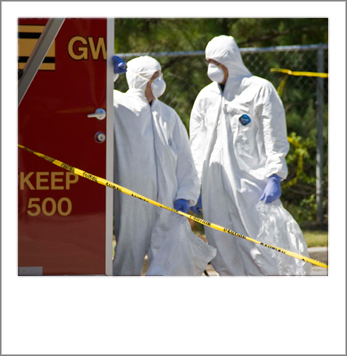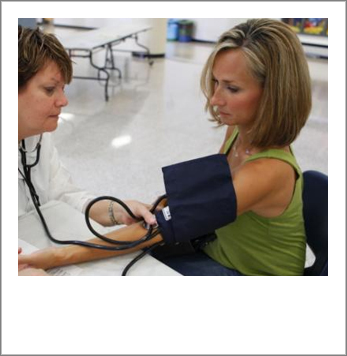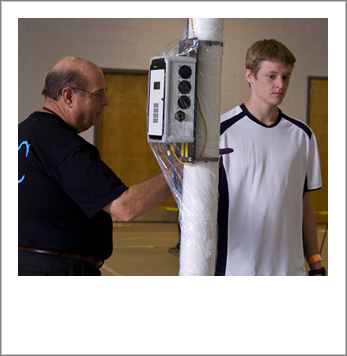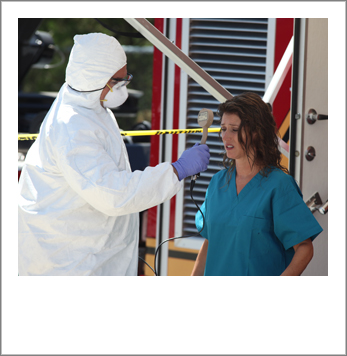Conclusion
As we conclude Psychological First Aid in Radiation Disasters, let’s summarize what we have covered.
You have learned the unique concepts regarding mental health preparedness for radiological disasters. In radiation disasters, we learned that population monitoring and registry are key roles for public health. People have an intense fear of radiation, which can intensify the psychological response. Therefore, monitoring and treating the mental and physical symptoms of survivors is vital for short and long-term health. The social stigma experienced by victims in radiological disasters increases their need for services and makes response and recovery difficult. One of the most significant aspects of major radiological disasters is the long-term effect of radiation on the individuals and the environment.
Finally, you are vital in the response to a disaster event! You can make a difference in a disaster as you are aware of the physical and psychological consequences of survivors. You can make a difference as you prepare yourself by anticipating survivors’ normal stress reactions and their natural resilience. And you can make a difference as you anticipate your own emotional and physical responses to disaster, and those of other responders.
We hope that the lessons we have shared from past radiation incidents will raise your awareness of the importance of incorporating a mental health component into your preparations for disasters, and particularly for a radiation emergency.
Dr. Luiz Bertelli was working as an Internal Dosimetrist during the radiation disaster in Goiânia. He talks about how important it was for the response community to pull together.
As we conclude Psychological First Aid in Radiation Disasters, let’s summarize what we have covered:
- Population monitoring and registry are key roles for public health
- People have an intense fear of radiation, which can intensify the psychological response
- The social stigma experienced by victims in radiological disasters increases their need for services
You are vital in the response to a disaster event!
- You make a difference in physical and psychological consequences of survivors
- Prepare yourself to anticipate stress reactions
- Anticipate your own emotional and physical response
Incorporate a mental health component into your preparations for disasters, especially radiological ones.
Dr. Luiz Bertelli
Former Internal Dosimetrist
Brazilian National Nuclear Energy Commission
Thank you for your time and attention to this important topic. We hope that you now have a greater awareness of the specific psychosocial consequences of radiological disasters. And beyond this awareness, we hope that you see ways that you can plan for, and respond to, the mental health needs of disaster survivors and first responders.
This program doesn’t conclude here. We have selected additional resources for you to learn more about radiation and how you and your organization can prepare for radiation emergencies.
We encourage you to complete the recommended training on topics, such as developing psychological first aid skills, learning about the special needs of children and other populations, and caring for first responders. This is not an easy topic to engage in, so we commend you for taking this first step and encourage you to continue learning about this important topic.
If you have questions or suggestions, please contact the Radiation Studies Branch at CDC. Our Web address, phone, and e-mail contact information are provided in the resources section.
Again, thank you for your participation in this program. Please remember to complete the test at the end of the program.
Thank you for your time and attention to this important topic.
This program doesn’t conclude here. We have selected additional resources for you to learn more about radiation and how you and your organization can prepare for the disasters.
We encourage you to complete recommended trainings such as:
- Developing psychological first aid skills
- Learning about the special needs of children and other populations
- Caring for first responders
Examples of these trainings can be found in the "Resources" section.
If you have questions or suggestions, please contact Radiation Studies Branch at CDC.









